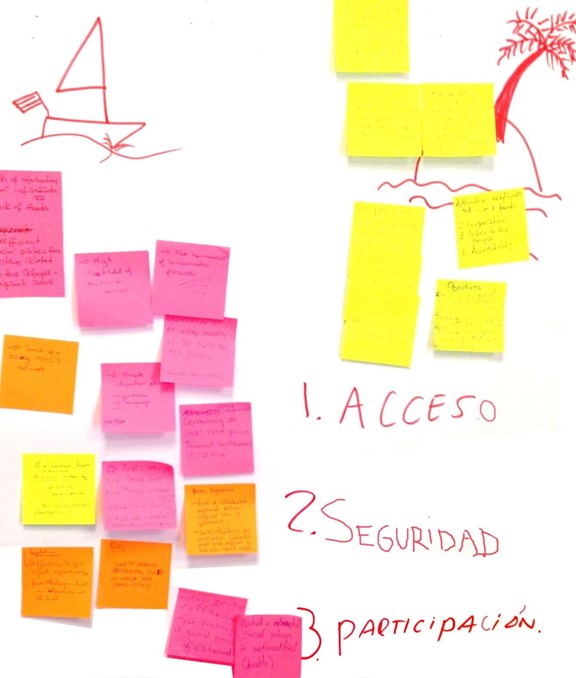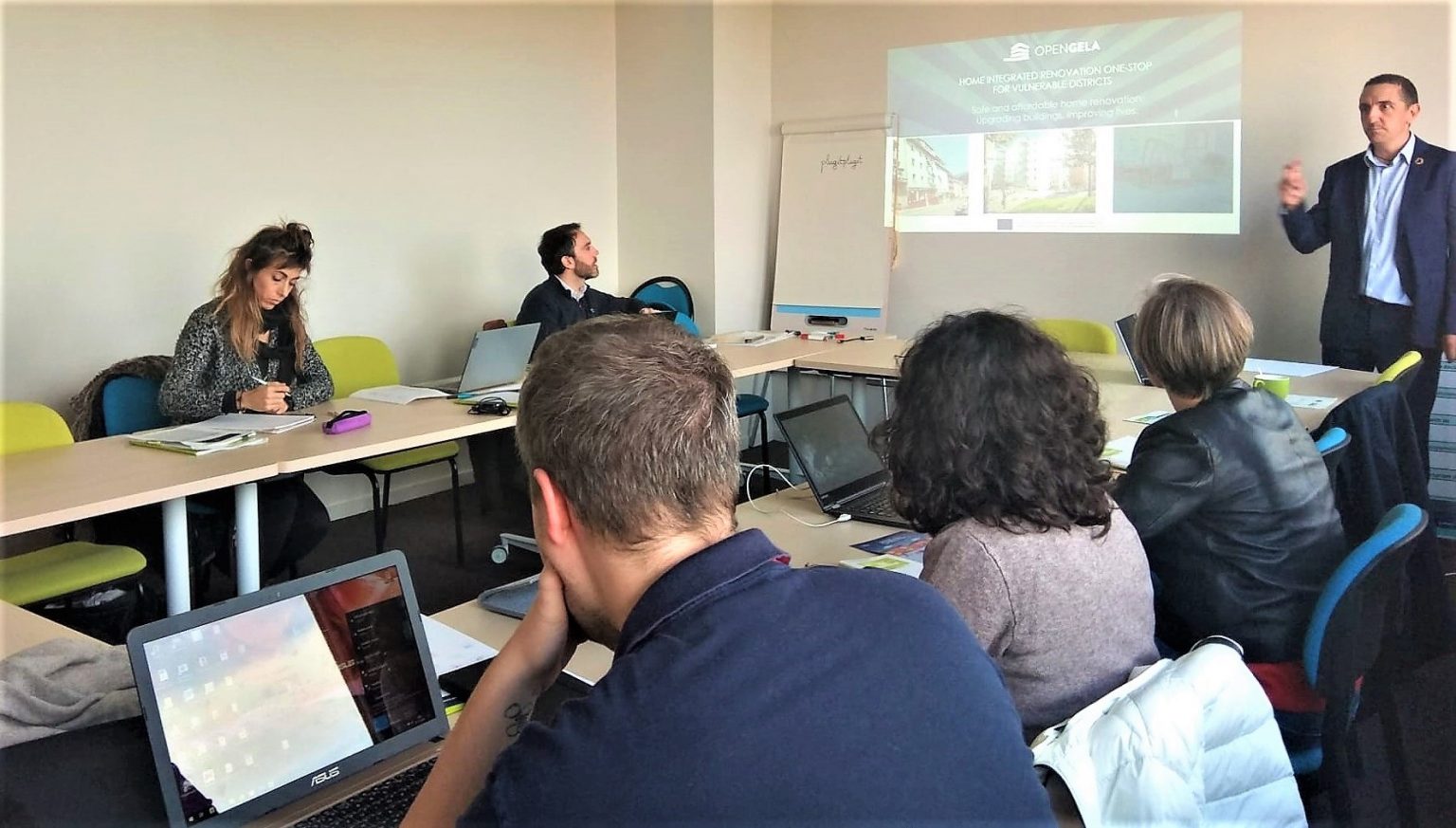Find out how a neighbourhood office can help you

In the neighbourhood offices linked to the Opengela project, the aim is to provide information regarding public aid which can be applied for, to help neighbourhoods with the paperwork involved in undertaking renovation work, to provide guidance on hiring professionals and companies to carry out the renovations, to improve the energy efficiency and accessibility of buildings, and to create financial instruments to ensure that no one is excluded as a result of their inability to pay for renovation works. All these tasks are performed by the Opengela offices, which are now open to the public.
The two pilot experiences in Txonta (Eibar) and Otxarkoaga (Bilbao) are underway and operate as one-stop-shops, serving the respective neighbourhoods included in the project.
The offices also serve companies and professionals in the sectors involved in the retrofitting of buildings. The aim is to ensure that the work is carried out following quality standards and that procedures can be carried out as far as geographically possible.
Due to the pandemic, the offices are taking special health and safety measures. In Otxarkoaga, Bilbao, it is necessary to make an appointment to visit the one-stop-shop. This location is carrying out work on five buildings with a total of 16 apartment buildings and 240 homes.
In the Txonta neighbourhood in Eibar, refurbishment is also being undertaken with energy efficiency and accessibility criteria. The pilot project has begun work on 221 homes in 17 apartment buildings.
Otxar Opengela is located at 16 Avenida Pau Casals, opposite the neighbourhood’s metro station. They can also be contacted by telephone at +34 946 851 932. Or by e-mail at otxaropengela@vvmm.bilbao.eus.
Txonta Opengela is located at 3 Calle Txonta. They can also be contacted by telephone at +34 688 779 737 and by e-mail at txontabulegoa@eibar.eus.
Appointment to adapt to the pandemic
The pandemic has been an obstacle to the implementation of the pilot projects in Txonta and Otxarkoaga, but it has not prevented their opening. The 3 people who run the office in the Bilbao neighbourhood and the person in charge of the Txonta Opengela office will be the first point of contact for those interested in the urban regeneration process. However, interactions must take place following health and safety protocols and as such, in the case of Otxarkoaga, it is necessary to make an appointment in advance.
Please call or send an email to either of the two offices to set a date for the consultations.


This project has received funding from the European Union’s Horizon 2020 research and innovation programme under grant agreement No 846707.
Otxar Opengela
Address: Avenida Pau Casals, No. 16, Otxarkoaga, Bilbao (In front of Plaza Kepa Enbeita)
Telephone: 946 85 19 32
E-mail: otxaropengela@vvmm.bilbao.eus
Txonta Opengela
Address: Calle Txonta No. 3, ground floor, Eibar
Telephone: 688 77 97 37
E-mail: txontabulegoa@eibar.eus
Copyright@2019 | All rights reserved | Legal notice | ![]()
![]()
Copyright@2019 | All rights reserved | Legal notice ![]()
![]()



